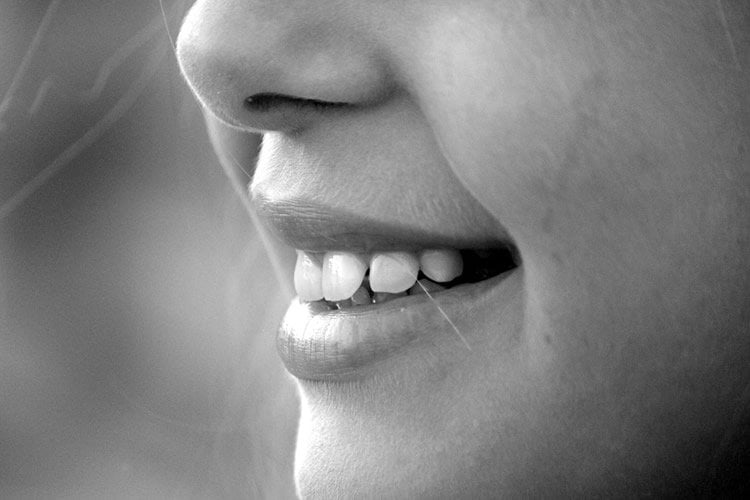Summary: According to researchers, people can perceive you to be up to two years older when they see you smile.
Source: University of Western Ontario.
Turn that frown upside-down? Not if you’re keen on looking younger, you shouldn’t.
A new study shows that smiling can make you appear to be two years older than if you wear a poker face. And if you reacted to that finding with a look of surprise – well, that expression might just have dropped years from your visage.
“We associate smiling with positive values and youth,” said study co-author Melvyn Goodale, director of the Brain and Mind Institute at Western University. “Think of all the skin-care and toothpaste companies that sell the same idea every day.”
But this study — in which researchers flashed images of people with smiling, neutral and surprised expressions — showed the opposite: participants perceived the surprised faces as the youngest and smiling faces the oldest.

“The striking thing was that when we asked participants afterwards about their perceptions, they erroneously recalled that they had identified smiling faces as the youngest ones,” Goodale said. “They were completely blind to the fact they had ‘aged’ the happy-looking faces. Their perceptions and their beliefs were polar opposites.”
Goodale said the aging effect of a smile stems from people’s inability to ignore the wrinkles that form around the eyes during smiling. A look of surprise, on the other hand, smooths any wrinkles.
“It may seem counter-intuitive, but the study shows that people can sincerely believe one thing and then behave in a completely different way,” Goodale said.
Source: Debora Van Brenk – University of Western Ontario
Image Source: NeuroscienceNews.com image is in the public domain.
Original Research: Abstract for “The effects of smiling on perceived age defy belief” by Tzvi Ganel and Melvyn A. Goodale in Psychonomic Bulletin & Review. Published online May 8 2017 doi:10.3758/s13423-017-1306-8
[cbtabs][cbtab title=”MLA”]University of Western Ontario “Smile and the World Thinks You’re Older.” NeuroscienceNews. NeuroscienceNews, 9 May 2017.
<https://neurosciencenews.com/smiling-older-perception-6625/>.[/cbtab][cbtab title=”APA”]University of Western Ontario (2017, May 9). Smile and the World Thinks You’re Older. NeuroscienceNew. Retrieved May 9, 2017 from https://neurosciencenews.com/smiling-older-perception-6625/[/cbtab][cbtab title=”Chicago”]University of Western Ontario “Smile and the World Thinks You’re Older.” https://neurosciencenews.com/smiling-older-perception-6625/ (accessed May 9, 2017).[/cbtab][/cbtabs]
Abstract
The effects of smiling on perceived age defy belief
It is a common belief that smiling makes people appear younger. Empirical findings, however, suggest that smiling faces are actually perceived as older than neutral faces. Here we show that these two apparently contradictory phenomena can co-exist in the same person. In the first experiment, participants were first asked to estimate the ages of a series of smiling or neutral faces. After that, they were asked to estimate the average age of the set of neutral and smiling faces they had just evaluated. Finally, they were asked what effect smiling has on one’s perceived age. In the experimental session, smiling faces were perceived as older than neutral faces. Nevertheless, after the experiment, consistent with their retrospective evaluations, participants recalled smiling faces as being younger than the neutral faces. Experiment 2 replicated and extended these results to a set of emotional expressions that also included surprised faces. Smiling faces were again perceived as older than neutral faces, which were in turn perceived as older than surprised faces. Again, retrospective evaluations were consistent with the belief that smiling makes people look younger. The findings show that this belief, well-rooted in popular media, is a complete misconception.
“The effects of smiling on perceived age defy belief” by Tzvi Ganel and Melvyn A. Goodale in Psychonomic Bulletin & Review. Published online May 8 2017 doi:10.3758/s13423-017-1306-8







